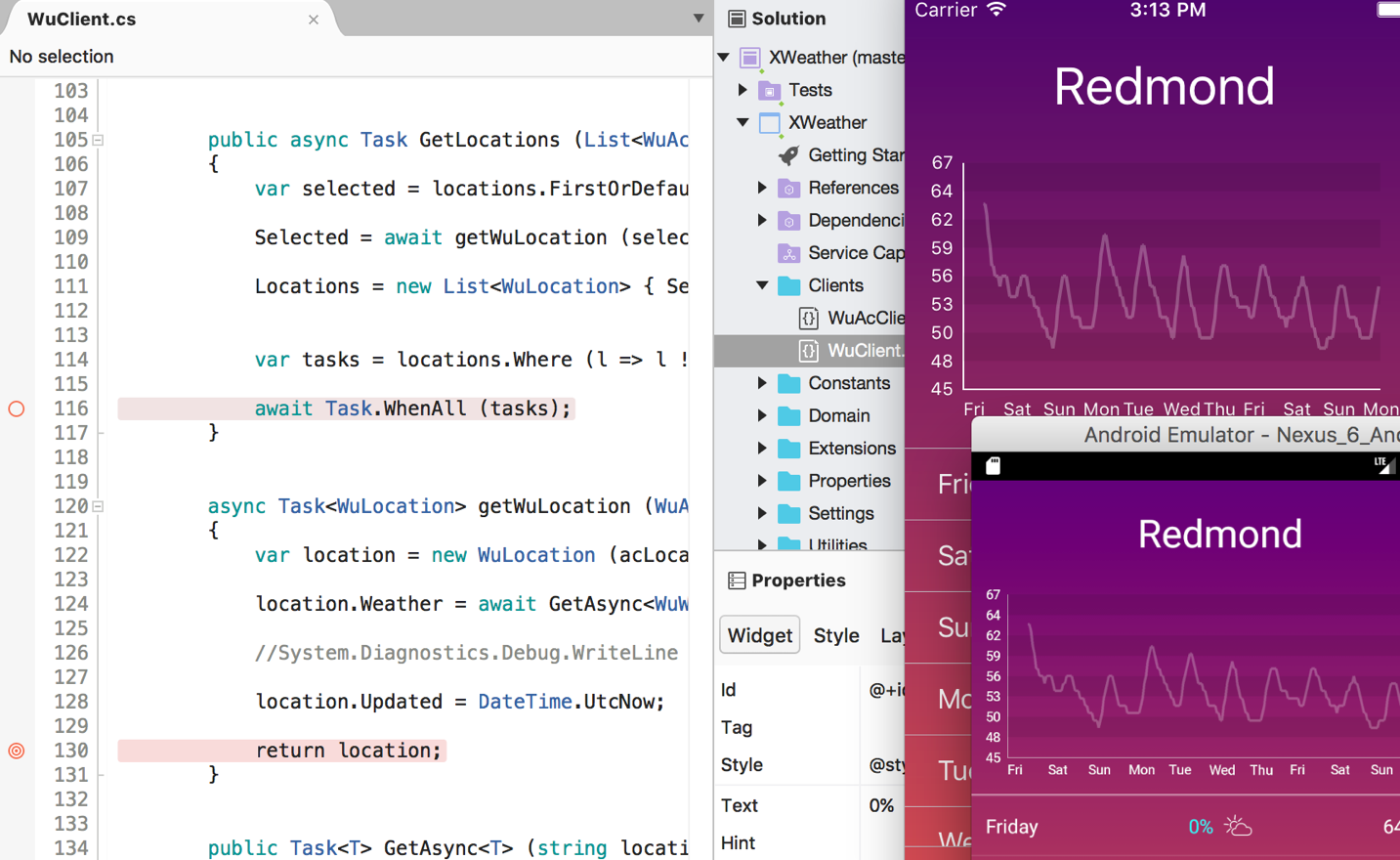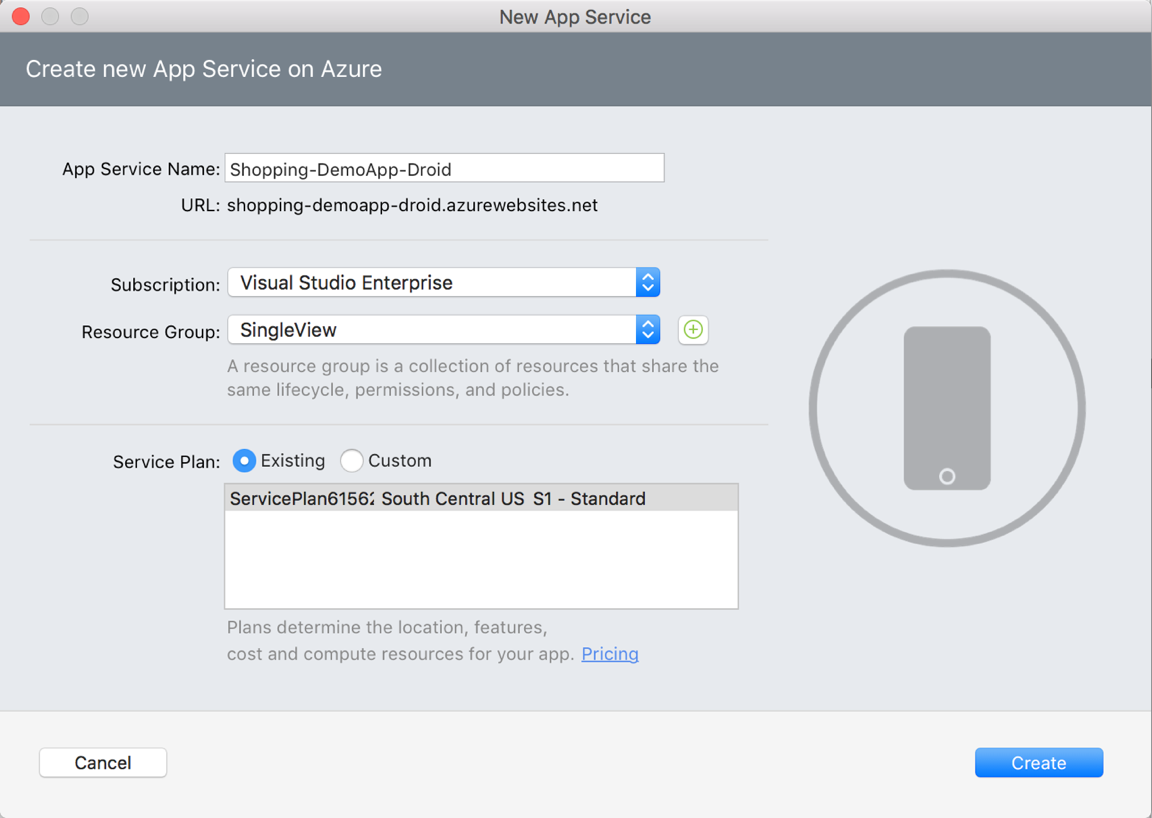Announcing the new Visual Studio for Mac
At this morning’s Connect(); 2016 keynote, Nat Friedman and James Montemagno introduced Visual Studio for Mac, the newest member of the Visual Studio family.Visual Studio for Mac is a developer environment optimized for building mobile and cloud apps with Xamarin and .NET. It is a one-stop shop for .NET development on the Mac, including Android, iOS, and .NET Core technologies. Sporting a native user interface, Visual Studio for Mac integrates all of the tools you need to create, debug, test, and publish mobile and server applications without compromise, including state of the art APIs and UI designers for Android and iOS.
Both C# and F# are supported out of the box and our project templates provide developers with a skeleton that embodies the best practices to share code across mobile front ends and your backend. Our new Connected Application template gives you both your Android and iOS front ends, as well as its complementary .NET Core-powered backend.
Once you’re up and running, you’ll find the same Roslyn-powered compiler, IntelliSense code completion, and refactoring experience you would expect from a Visual Studio IDE. And, since Visual Studio for Mac uses the same MSBuild solution and project format as Visual Studio, developers working on Mac and Windows can share projects across Mac and Windows transparently.
With multi-process debugging, you can use Visual Studio for Mac to debug both your front end application as well as your backend simultaneously.
Mobile-First
Visual Studio for Mac provides an amazing experience for creating mobile apps, from integrated designers to the code editing experience to the packaging and publishing tools. It is complemented by:
- The full power of the beloved-by-millions C# 7 programming language
- Complete .NET APIs for Android, iOS, tvOS, watchOS, and macOS
- The Xamarin.Forms API abstraction to maximize code sharing
- Access to thousands of .NET libraries on NuGet.org to accelerate your mobile development
- Highly optimized native code backed by the LLVM optimizing compiler
But we know apps don’t stop at the client, which is why I am so excited about what Visual Studio for Mac brings to backend development, as well.
Check out the release notes for a complete list of what’s included in this product.
Cloud-First
It is rare these days for mobile applications to run in isolation; most of them have a backend that does the heavy lifting and connects users.
You can use .NET Core to build your own backend services and deploy these to your Windows or Linux servers on Visual Studio for Mac, while the project templates will get you up and running with an end-to-end configuration.
Additionally developers can easily integrate Azure mobile services into their application for things like push notifications, data storage, and user accounts and authentication with Azure App Services. This is available in the new “Connected Services” project node.
Whether you are rolling out a custom backend with ASP.NET Core, or consuming pre-packaged Azure services, Visual Studio for Mac will be there for you.
Check out the release notes for a complete list of what’s included in this product.
What’s Next
Today we released the first preview of Visual Studio for Mac, a member of the Visual Studio family, and the story is just beginning. In the coming months we will be working with the Visual Studio and Visual Studio Code teams to bring more features that you love to the Mac, from advanced Web editing capabilities to support for more programming languages via the Server Language Protocol.
Visit the Visual Studio for Mac page and take it for a spin. We look forward to hearing your feedback!
 |
Miguel de Icaza, Distinguished Engineer, Mobile Developer Tools
@migueldeicaza
Miguel is a Distinguished Engineer at Microsoft, focused on the mobile platform and creating delightful developer tools. With Nat Friedman, he co-founded both Xamarin in 2011 and Ximian in 1999. Before that, Miguel co-founded the GNOME project in 1997 and has directed the Mono project since its creation in 2001, including multiple Mono releases at Novell. Miguel has received the Free Software Foundation 1999 Free Software Award, the MIT Technology Review Innovator of the Year Award in 1999, and was named one of Time Magazine’s 100 innovators for the new century in September 2000. |



 Light
Light Dark
Dark
0 comments